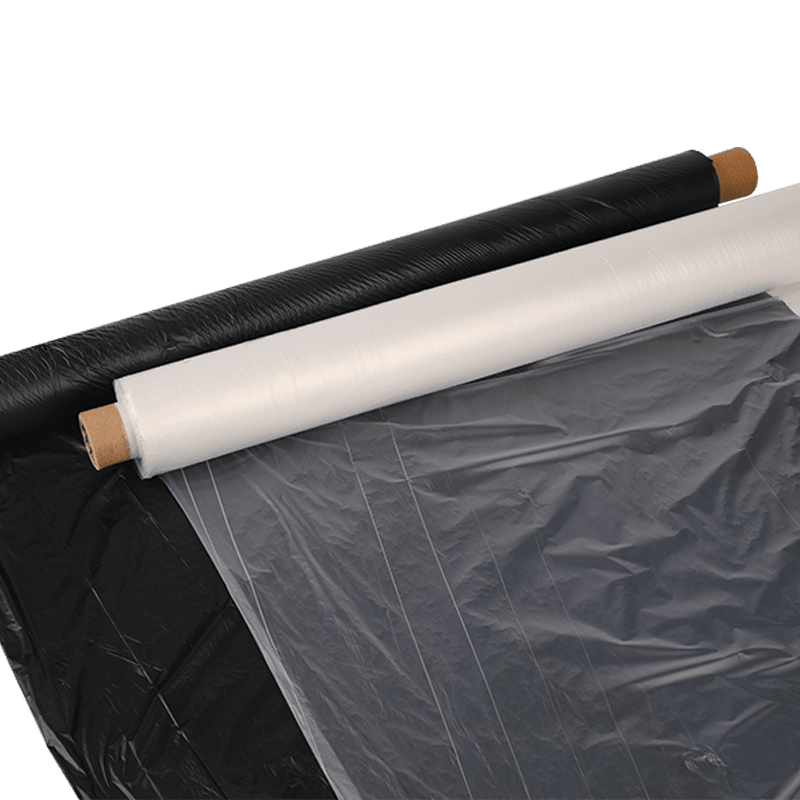How Biodegradable Mulch Film Improves Crop Yield and Quality Through Smart Soil Management
In modern agriculture, improving crop yield and quality isn’t just about the seeds or fertilizers used — it’s also about how the soil is managed throughout the growing season. One innovation gaining ground among forward-thinking growers is biodegradable mulch film. By maintaining a stable environment at the root level, this eco-conscious solution helps optimize plant development, especially for sensitive crops like strawberries, tomatoes, corn, and leafy vegetables. Unlike traditional plastic mulch, which often disrupts soil ecosystems and requires costly post-harvest removal, biodegradable options offer performance without compromise.
The most immediate benefit that farmers observe is improved soil temperature regulation. Mulch films made from biodegradable materials like PLA and PBAT trap heat during cooler periods and minimize overheating in warmer climates. This consistent soil warmth promotes faster germination and supports early root establishment — two critical stages in achieving a uniform and healthy crop. Stable root environments reduce plant stress, which directly impacts overall yield potential and the visual appeal of the produce.
Water management is another area where biodegradable ground cover shines. By reducing surface evaporation and controlling soil moisture loss, these films help maintain ideal hydration levels without over-irrigation. For high-value crops like blueberries or potatoes, this means fewer signs of water stress such as leaf curling, uneven growth, or underdeveloped tubers. Maintaining consistent moisture also encourages better nutrient uptake, which in turn enhances taste, texture, and size — all key market factors for fresh produce buyers.

Weed control plays a quieter but equally important role. Biodegradable mulch film blocks sunlight from reaching weed seeds, inhibiting their growth without the need for chemical herbicides. Fewer weeds mean less competition for nutrients and moisture, allowing crops to thrive without interruption. Unlike conventional plastic mulches that leave harmful residues or must be manually removed, biodegradable alternatives naturally decompose into non-toxic substances, contributing to the soil’s long-term fertility and reducing labor costs — a win-win for farm efficiency and sustainability.
Moreover, the uniformity in plant development achieved with mulch films leads to more consistent harvests. Growers often report tighter maturity windows, which allows for more streamlined harvesting and better sorting during packing. This is particularly valuable for operations supplying retail markets, where visual consistency and quality standards are strict. A good biodegradable mulch doesn’t just support the plant — it supports the business behind the harvest by improving market readiness.
It's important to note that not all mulch films are created equal. A properly engineered biodegradable solution will balance tensile strength and breathability, decomposing at a rate that aligns with the crop cycle while retaining performance throughout the season. This is where experience as a manufacturer matters. At Dajue, we tailor our mulch film specifications — from width and thickness to material composition — to match regional growing conditions and diverse agricultural needs, ensuring our partners can grow with confidence.
For agricultural professionals who want to move toward sustainable practices without sacrificing yield or product quality, biodegradable mulch film is more than a responsible choice — it’s a strategic one. By solving multiple field-level challenges in a single application, it enables growers to get more from their land, more efficiently. Whether you’re cultivating high-value specialty crops or managing large-scale vegetable production, Dajue’s mulch films bring both innovation and reliability to your field.

anteriorNo previous article
nextNo next article




















